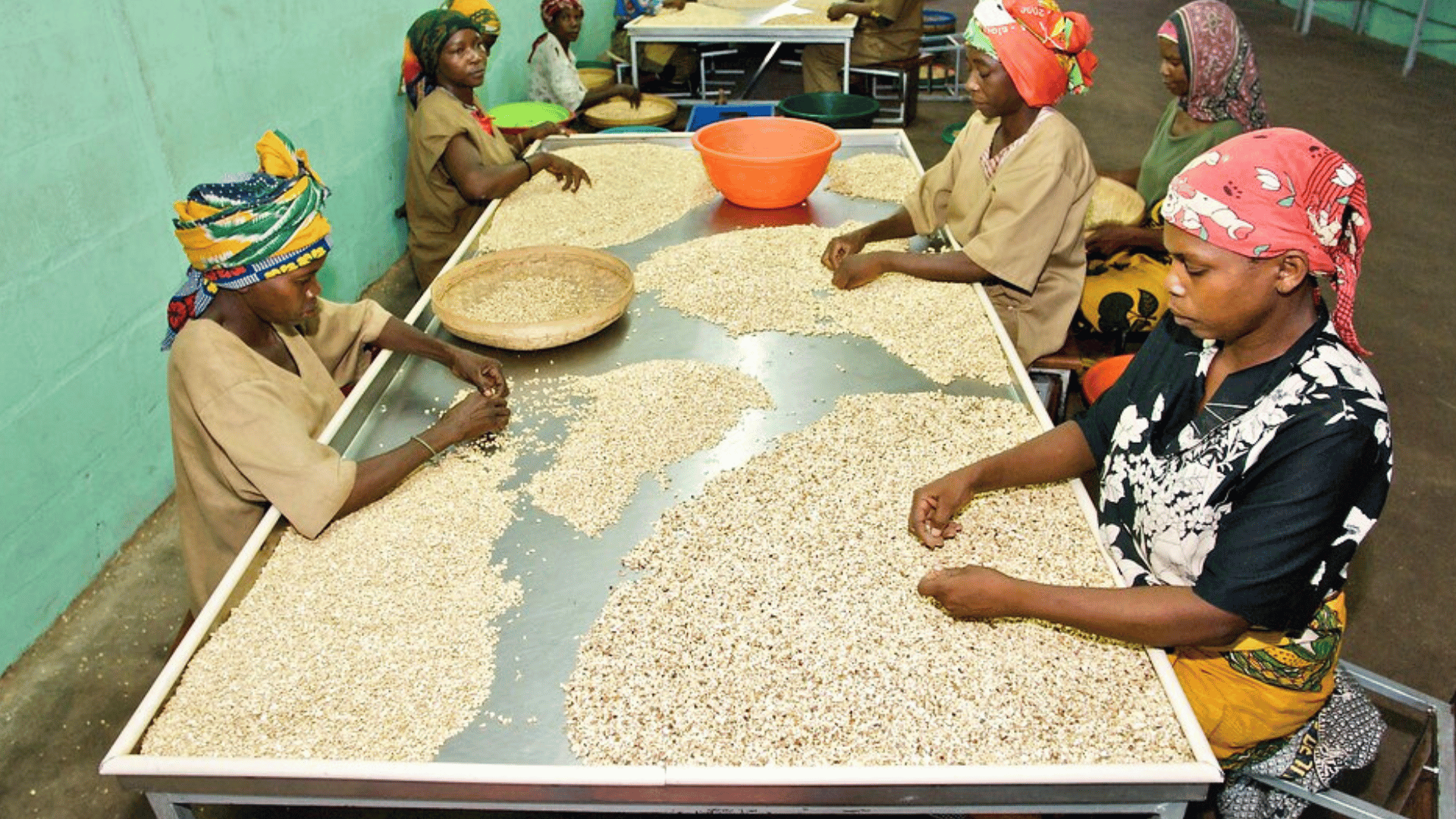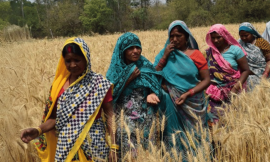There is growing appreciation for the critical role of private sector actors in supporting agri-food system transformation in Africa. They link farmers to markets, provide services and shape how value is distributed. When these actors thrive, so do rural economies.
Yet efforts to engage the private sector often run into hurdles: misaligned incentives, mistrust between actors and outdated systems that limit both investment and the flow of information. Without the right conditions, even well-funded initiatives can fall short of achieving lasting change.
The cashew sector in West Africa offers important lessons about how to overcome this challenge. West Africa supplies almost half of the world’s output, but historically most of the value—jobs, investment, and product innovation—has been captured elsewhere. Fragmented supply chains and limited local processing have left farmers with unreliable buyers and volatile prices. But that picture is beginning to change.
Within the region, each country has taken a slightly different approach to driving cashew processing. Yet while government and public-sector efforts are vital, they cannot achieve transformation on their own. The private sector is a critical partner for overcoming these systemic barriers. As a result of these cross-sector efforts, cashew processing in West Africa has grown significantly, rising from just 8 per cent in 2020 to 25 per cent in 2024 — demonstrating the power of coordinated action to capture more value where it is produced.
Three levers for change in private sector engagement
Drawing on TechnoServe’s experience in the sector, we have identified three key levers that have helped drive this change. They signal how the private sector engagement can support agri-food system transformation elsewhere:
- Trust: Strengthen relationships across the value chain by fostering open dialogue, shared goals and information, and collaboration between farmers, businesses, governments, and other stakeholders.
- Technology: Apply practical innovations— from machinery that improves productivity to software that enhances traceability—that help markets operate more transparently, efficiently, and effectively.
- Transition: As food systems transition, niche innovations at different entry points in the system are required to shift relationships and new ways of doing business across segments of value chains.
The 3 Ts in action
By employing these levers, stakeholders in West Africa are addressing some of the thorniest challenges to scaling local cashew processing and creating a more prosperous and inclusive cashew value chain.
Access to finance
In a sector like cashew processing that needs significant capital expenditures and working capital, access to affordable finance is essential. However, financial institutions also face risks in working with processing businesses.
Effective programs work on both sides of the equation to build trust: engaging lenders to understand gaps in their products and risk assessments, while also helping processors strengthen their technical capacity and adoption of new technologies, thereby improving business practices and becoming investment-ready.
To strengthen smallholder access to finance in Benin, TechnoServe helped farmers digitise their financial records, giving them the documentation they needed to secure loans from microfinance institutions.
In Côte d’Ivoire, Nigeria, and Ghana, TechnoServe helped familiarise financial institutions with the opportunities in the cashew sector and supported value chain actors in identifying appropriate financing mechanisms and submitting strong loan applications. An Innovation and Enterprise Development Fund (IEDF) provided matching grants to entrepreneurs facing barriers to investment, unlocking capital and accelerating growth across the sector. This initiative facilitated more than $5.1 million in investment in the cashew sector that generated around $28 million in sales.
Ensuring high-quality supply
Agribusinesses often struggle to secure a consistent, high-quality supply of products from thousands of smallholders. In West Africa, ensuring a consistent supply of high-quality cashew has been critical to spur the expansion of local processing.
One key has been helping farmers to create and join effective cooperatives; establishing clear membership registries, improving governance, and strengthening management systems are essential to reliably meet volume and quality commitments.
Over the course of one TechnoServe program, 78 cashew producer cooperatives were established, each with a functional membership registry in place. All of the supported cooperatives successfully signed contracts with at least one buyer. Agronomy training also improved smallholder yields by 75 per cent.
Policy can also play a key role. The government of Benin launched the National Development Program for Cashew (Programme national de développement de la filière anacarde, PNDFA) to strengthen the sector. It introduced a price floor for raw cashew nuts (RCN) and a ban on RCN exports. These actions ensured farmers had a dependable income while improving processors’ access to local raw nuts and encouraging greater investment in the sector.
Enabling data-driven decision making through private sector engagement
Access to accurate, timely information is enormously important for improving competitiveness. Better information allows businesses, governments and farmers to make decisions that reduce risk, capture more value and strengthen the entire value chain.
Traditional information systems in agriculture are often fragmented or prohibitively expensive. Digital tools for supply chain management, traceability and farmer engagement can help fill these gaps—providing insights that would be costly or impossible to gather otherwise.
For example, TechnoServe partnered with the University of Minnesota to develop Benin’s first national map of cashew production using satellite imagery and machine learning. This tool enables governments, development partners and private sector actors to more efficiently target training, inputs and services—enhancing transparency and planning across the value chain.
Investing where value is created: the future of agri-food systems is a collective effort
The results are clear: cashew processing initiatives have created more than 8,700 jobs, two-thirds of them for women, transforming communities through new income and demand for services. These outcomes speak about the importance of farmer-allied intermediaries like processors and cooperatives that can create and share value across the food system.
Looking ahead, the next stage in West Africa is to build on these achievements by ensuring that measurement and accountability rest with local businesses and government actors, while channelling greater investment into marketing and resilience to consolidate gains as the prospect of industry consolidation emerges.
What is happening in West Africa’s cashew sector shows what can be achieved elsewhere when trust, technology and transition converge at the centre of private sector engagement.





